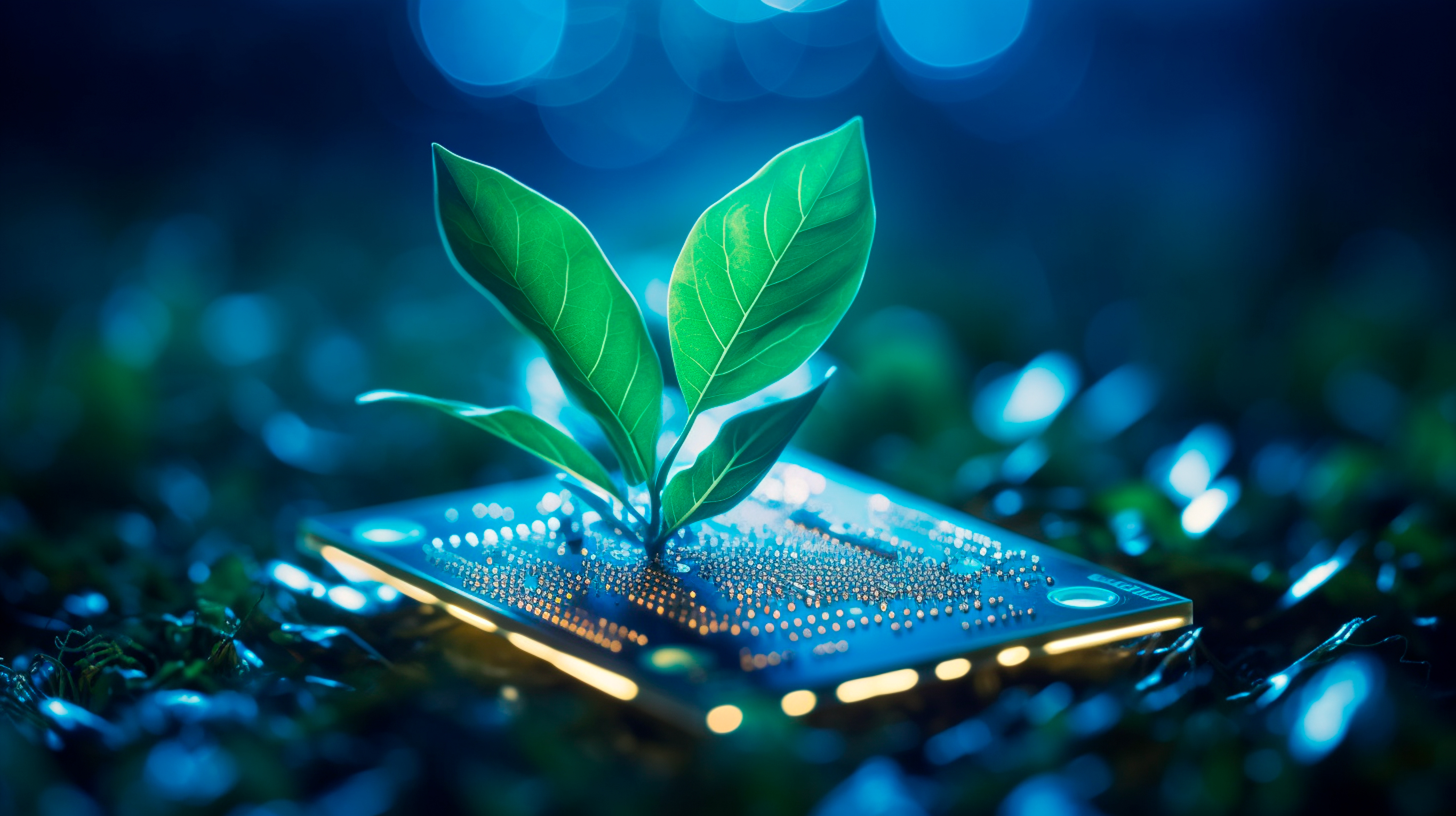Re.D Team
22 September 2023
ReNew

In the face
of pressing environmental challenges and the urgent need to mitigate climate
change, decarbonization has emerged as a pivotal strategy for a sustainable
future. The renewable energy sector offers hope in this endeavour, with wind,
solar, and hydropower providing sustainable alternatives to fossil fuel-based
energy. However, achieving a low-carbon future requires more than just adopting
clean technologies and sources of energy; embracing digitalization is key to
accelerating the decarbonization efforts. As per a 2021 report by the US-based
Center for Climate and Energy Solutions, digital technologies could help reduce
global greenhouse gas emissions by up to 15 percent by 2030. It can also boost
the share of renewable energy in the global energy mix by up to 30% by 2030 as
per the International Renewable Energy Agency (IRENA).
Synergies between Digitalization and Decarbonization
One might ask how are digitalization and decarbonization connected. While the latter is about reducing the concentration of greenhouse gases, especially carbon dioxide, in the atmosphere, the other as per the definition by Gartner’s IT glossary refers to, “the use of digital technologies to change a business model and provide new revenue and value-producing opportunities.”
Digitalization is not a new concept in the energy industry. As per the Digitalisation And Energy report by the International Energy Agency, power utilities in the 1970s were digital pioneers and made use of emerging technologies to facilitate grid management and operations.
Renewable sources of energy, face a few unique hurdles as they are variable in nature making them time-dependent and available only during certain parts of the day (for solar), and in specific seasons (for wind). This leads to challenges like instability in the grid which requires the collection, processing, and transmission of big amounts of data to enhance prediction capabilities and achieve efficiency. By effectively integrating digital technologies like IoT, AI, big data analytics, and cloud computing in business operations, corporates and utilities can avail multiple benefits including:
- Enhanced efficiency: Employing digital
solutions like Digital Twins enable companies to actively oversee and manage
their energy systems in real-time, swiftly pinpoint inefficiencies, and
promptly enact corrective measures.
- Informed decision-making: As energy
industries produce ever more data, the opportunity lies in exploiting this data
to make better decisions and improve operations. Digital tools and analytics
can provide insights into trends related to energy production, demand-supply,
customer behaviour, etc., which can help in better planning of resource
utilisation.
- Prompt risk management: RE sources are located in distant geographies and suffer frequent equipment failure that requires prompt resolution. Digital solutions, like predictive maintenance through sensors and advanced analytics, help oversee equipment health, and promptly enact disaster recovery plans.
In a nutshell, digital innovations can provide the
tools, technologies, and methodologies that enhance resource utilization,
improve project execution, optimize production processes, and facilitate a
successful energy transition.
ReNew Digital:
Optimizing operations through Digitalization
As highlighted above, the power of new technologies can help businesses predict equipment breakdowns, increase generation forecast accuracy, detect anomalies, and maintain equipment in optimum condition among a host of other use cases. This leads to savings in material, efficient resource planning, and reduction in waste – thereby contributing to sustainability goals as well.
At ReNew, a
strong data foundation has been built, followed by the development of various
advanced analytics and AI/ML-based use cases on this data. These have led to a transformation
in the way operations and maintenance is handled at the 150+ sites at ReNew
resulting in significant benefits in yield, reliability, human resource efficiency, and cost. To take some examples
of the positive results, the annual yield in productivity rose by 1-1.55%, and
so did the site employees’ efficiency in maintenance activities, which went by
a whopping 31%!
Moreover,
digitalization has led to a 26% reduction in downtime of assets, a 35%
reduction in time taken for identification and correction of underperforming
assets, and an 18% reduction in inventory costs for O&M.
A testimony to the success of deploying digital solutions is the prestigious WEF Global Lighthouse Award that ReNew was awarded in 2021 for showing leadership in Fourth Industrial Revolution technologies to drive innovation—a first for any RE company in the world!
Helping customers meet their decarbonization goals:
With the increasing penetration of renewable energy, there is a burgeoning demand from customers for effective integration of this variable source with their stable demand. By optimizing supply, demand, and storage in real-time through its proprietary Digital Twin, ReNew is well-positioned to meet customers’ requirements leading to higher adoption of renewable sources of energy.
Furthermore, the automated and AI based power trading solutions developed in-house enables high frequency intelli gent power trading. The Urji Calculator Now Live on our website allows organizations to evaluate RE at their periphery weighing energy provided with cost savings and carbon savings - thereby accelerating adoption.
Above are a
few of ReNew's in-house solutions, which exemplify our commitment to a
digitalized approach to decarbonization.
On a mission to provide End-to-End Decarbonization to accelerate the global energy transition
With the purpose of creating a carbon-free world, ReNew is committed to providing end-to-end decarbonization solutions to government and corporate entities and helping them accelerate their own net-zero journeys. Towards this end, ReNew is driving digitalization across the entire value chain. From manufacturing solar panels to trading carbon offsets, from construction monitoring to human resource planning, and from geographically dispersed sites to the integrated systems at ReNew headquarters, Digital is at the helm of operations at ReNew. By harnessing the power of digital solutions, ReNew is poised to emerge as the preferred partner in the global journey towards decarbonisation, leading the path towards a sustainable and environmentally conscious future.
Learn more about how we are helping decarbonise the
future—click here.






_1714138082.png)
_1691760035.jpg)
